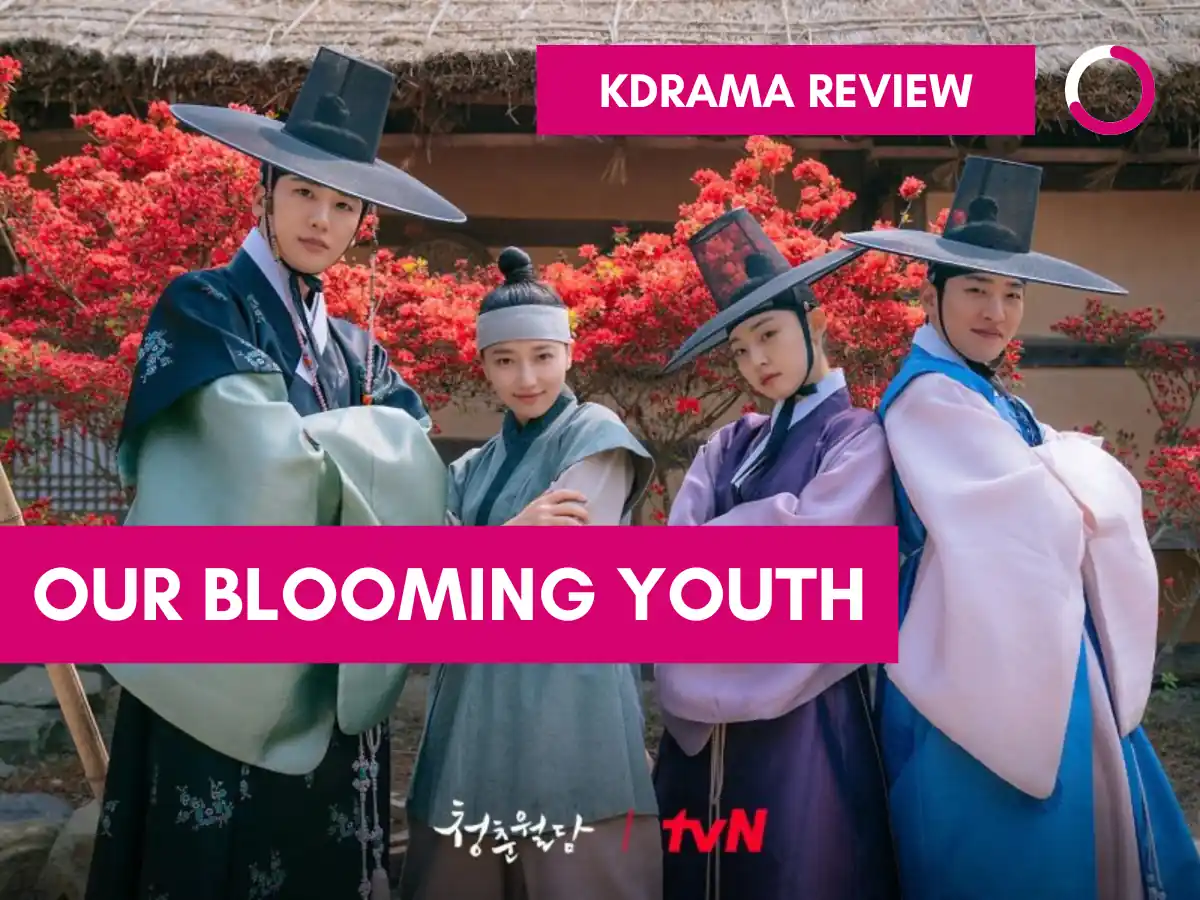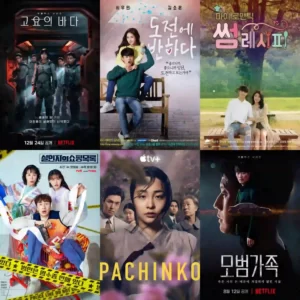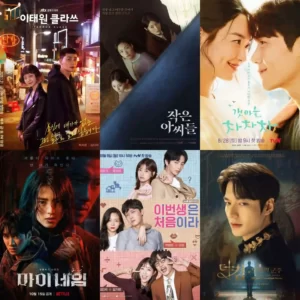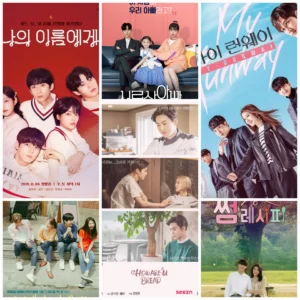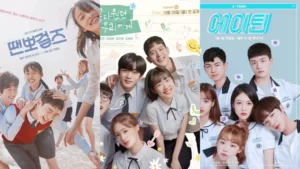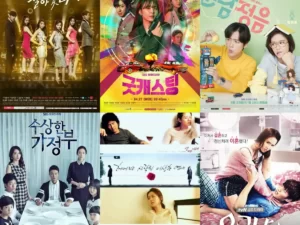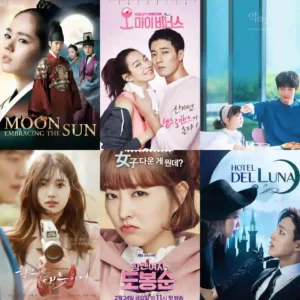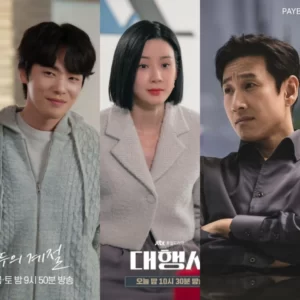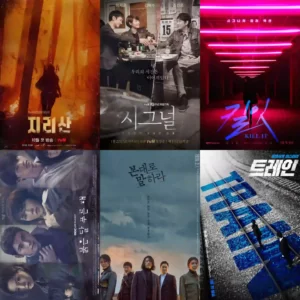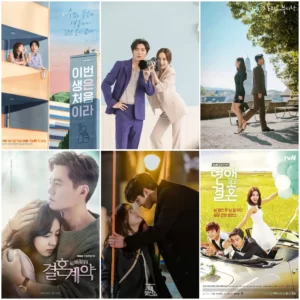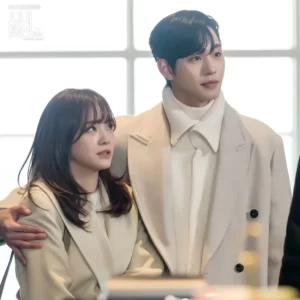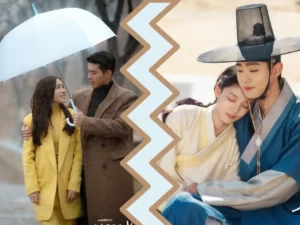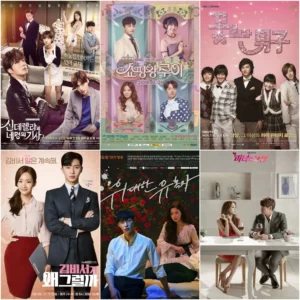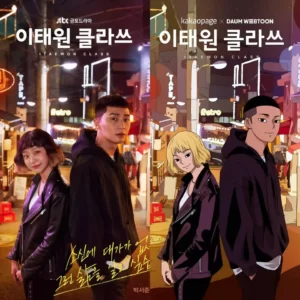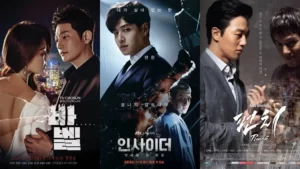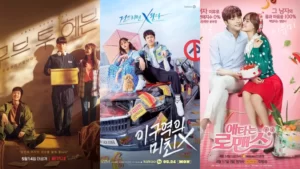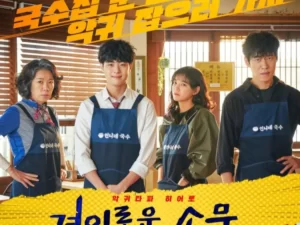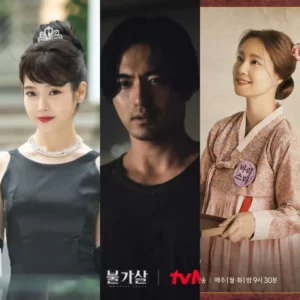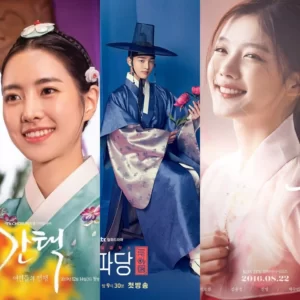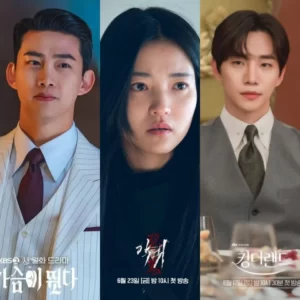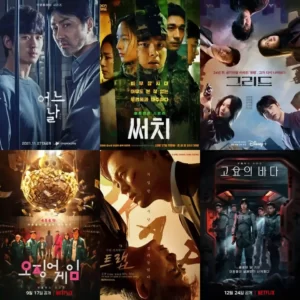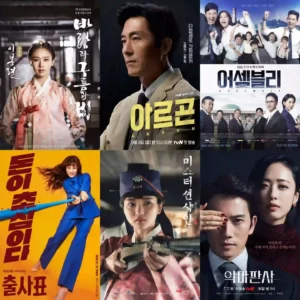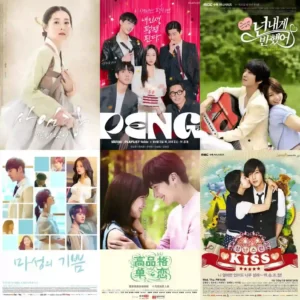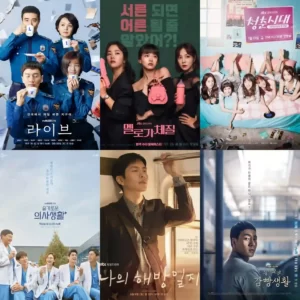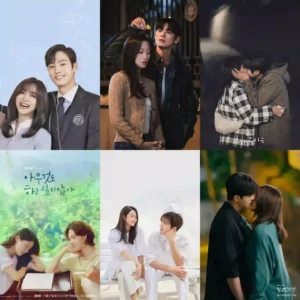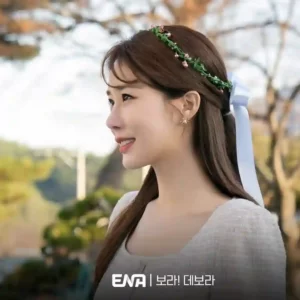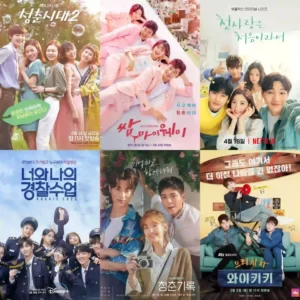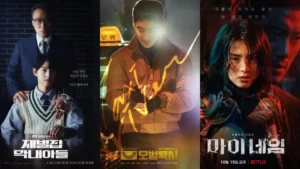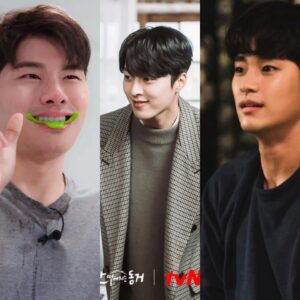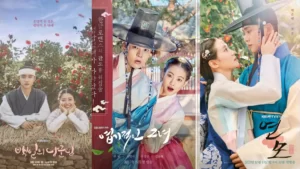If you’ve been on the fence about whether or not to watch Our Blooming Youth, I totally get you. With that title and the leads, I was also a bit skeptical about how the characters would manage to pull off what I thought would essentially be a coming-of-age drama.
I watched the first episode when it aired and I loved it so much, so I promptly dropped it and patiently waited for the final episode to drop — which it did a few days ago, and I powered through episodes 2 – 20, before sitting to write this review.
Full disclosure: there will be massive spoilers ahead, so if want to get the main gist of the story without pesky spoilers, skip to this section, and block out the rest of the text with your hands. Or, you can take a look at this block to see how I scored the different elements of the drama.
In this review, I’ll cover the cast, major takeaways, what I liked and didn’t like about the plot, and the ending. Basically, all of these are my thoughts and the impressions I got while watching, so even if I don’t leave a favorable comment on something that you feel you’ll like, please don’t hesitate to still try watching this drama.
What is Our Blooming Youth about?
The plot of Our Blooming Youth follows Min Jae Yi (played by the beautiful and talented Jeon So Hee) who escapes after she’s accused of murdering her entire family days before her wedding.
Just before dying, her father makes her promise to protect the prince (Park Hyung Sik), and she does this by convincing the prince to let her live as a eunuch by his side while she clears her name and solves the mystery surrounding the prince.
Turns out, the prince had been accused of killing his elder brother (the former crown prince) years ago after the former had possibly given the crown prince a peach which triggered a reaction to the medicine he was taking.
Because of this, there’s a subtle hint of disdain I could feel from everybody in the palace from the maids to the nobles. Also – and this is probably the biggest plot point – the prince had received a missive one night that laid some very creative premonitions on him, and this is the root of the plot about the curses.
As expected, he was deeply shaken by this admittedly spooky occurrence and sort of beefed up his security to prevent his potential enemies from striking.
When Jae Yi comes into his employ, their relationship is bumpy at best, but when she proves her sleuthing skills in a detective show off with his best friend, Han Sung On (Yoon Hong Suk), the crown prince fully tasks her with figuring out the mystery about the missive.
They then form a little band with Jang Ga Ram (Pyo Ye Jin), Jae Yi’s maidservant who’s on the run from slave-hunters, and Kim Myung Jin (Lee Tae Sun), a self-taught pathologist and the owner of Manyeondang – a rented apartment where they host their sporadic meetings and is sort of an office.
Soon enough, they discovered that there was a whole criminal underbelly primarily made up of individuals from Byeokcheon who had been illegally ousted from their homes a decade prior.
The scattered remnants of this clan had infiltrated practically every cadre of society and were wreaking havoc in the worst way possible. Sending curses to the prince, spreading information, and all the political maneuvering. It was all high-tech for the Joseon era, if I do say so myself.
So, the crown prince figures out that this group was behind everything and once he finds out the root of their pain, he sets out to right the wrongs and puts repatriation plans in motion – the first thing he does is listen and address their pain, then he starts digging a well in their temporary settlement.
Eventually, the bad guys are caught and punished (one was actually quartered), he mans up and goes for his girl (Jae Yi) who has now opened a little school teaching commoners, the other team members (the coroner and the maidservant) sort of start their romance after the coroner’s family promptly kicks him out of their family registry – but in a loving way.
This is basically the plot of Our Blooming Youth.
Review of Our Blooming Youth.
I think Our Blooming Youth was brilliant. Everything from the costume to the cinematography to the cast checked out, but I feel it suffered from having too many moving parts. That’s to say, there were entirely too many plot elements and points that it sort of became laborious keeping track of them, and the payoff at times was rather weak.
For example, Yi Hwan, the crown prince, was said to have like a photographic memory. That’s to say, he could look at a paper and memorize everything on it. In fact, he had entire registries crammed in his head, and there were these really cool montages where he would be looking for a memory and would sort of sift through the file in his head. This was very, very, super-very cool, so when it wasn’t being used as much during their investigations, I kept asking myself – to what end?
Because, this character strength didn’t come to play during their investigations and the eventual payoff surfaced when he had been locked in by his father for like a month and he needed to come out, so he colluded with a Sungyukwan scholar to have this like event where he would help them restore old documents, everything felt a little jumbled.
In the scene, he looks at the page, memorizes it, and then writes it onto a big sheet that was plastered on a board and the rest of the scholars copied it. You see why I was confused? I wasn’t entirely sure how this played into everything, and it was such a letdown. This is just one of the many plot points that either served to make the plot extra chunky or to introduce some unnecessary complexity.
Another is her apparent fighting skill which also didn’t come out to play basically throughout the story and then the overly-cute Guardian Warrior (this title and the character himself made me chuckle a good number of times) and his twin brother who – you’ll never believe this – takes a bullet for the prince in the last episode despite hating him less than a few hours before the final showdown.
Back to my comment about the title being somewhat misleading – do you see this? I don’t think anyone could look at the title “Our Blooming Youth” and not immediately envisage a coming-of-age drama. So, as I said earlier, when I saw the title and Park Hyung Sik (who is simply a fantabulously talented actor) and the rest of the cast lineup, I was a little worried about the execution.
Hyung Sik is an amazing actor (I’ll talk more about how I’m willing to walk with him to the ends of the earth in a minute), but I was a little worried about how he would manage to pull off a young-adult character.
So, while I was glad that this wasn’t a YA drama, that title just feels a little ill-fitting. A friend said that the “youth” in question might be referring to Joseon, and, reader, I guffawed.
Another thing is that the poster I saw the very first time I heard about this drama was the one where he was behind her and they were sort of in this rather scandalous position, so I expected moreeee romance. Hyung Sik is one of those actors cursed with having incredible chemistry with his costars, so I felt this was going to be the bomb. I was a little disappointed.
That’s not to say I was completely disappointed because there is romance in Our Blooming Youth, but with 20 episodes and the incredibly political primary plot, the romance took time to develop before it just rushed at me. That’s to say, I feel like it just came out of nowhere.
Not a bad thing, but, if perhaps, it had been given some time to grow, I daresay it would have felt even more organic. When I say it should be given more time to grow, that’s not to say the episodes should be extended, but maybe having the romance be the central focus in the earlier episodes and shifting things around so they’ll have time to bloom (did you see what I did there?)
I think the entire team set out to pull off an incredible feat, and it showed with the way the story was quite literally stuffed to the brim with tropes. That’s not to say this is bad, because it might be your jam, but I kind of felt that it stretched some threads too thin, and for some other threads, didn’t allow those to grow at all. I do think that this made the characters feel more dynamic and rounded, so there’s that.
I absolutely loved the plot point about the people of Byeokcheon, and, I’ll never admit this in person, but I might have cried when they finally opened up about what they went through. I couldn’t help but draw parallels between what they went through and what some minority groups face in different parts of the world today.
I think the last time I’ve seen something like this in a historical Korean drama was when I watched Nokdu Flower, and while the latter was decidedly grimmer than Our Blooming Youth, I really liked the whole plot about an insurrection (or, lack thereof), and I feel it really added flavor to this drama.
Aside from these, I thoroughly enjoyed Our Blooming Youth. One thing you should know is that it’s not just about the mystery – it’s also a story about forgiveness and trust and love and faith. I saw these in every character’s story, and it was so inspiring. The crown prince’s friendship with his best friend sent shocks down my spine, and you’ll understand this more when you watch the drama.
Is Our Blooming Youth Worth Watching?
Absolutely! Although, I wouldn’t recommend this to you if you’re going in for the romance. This is slow-burn at its finest, and with 20 episodes, you know you’re in for a long, long, long ride.
If you have the stomach to watch a Kdrama about a segregated and discriminated sect of society (it was really, really, really bad, you guys), then you’ll enjoy this one. Having to hide for their perceived wrong, the open disdain, the tears – it was so painful to watch the Byeokcheon people drag themselves through life.
Because of what they had suffered, they had become incredibly distrustful of people, and I like that the prince wasn’t above working hard to prove to them that he was on their side. Hyung Sik bodied this role of a wise and empathetic prince, and I found him utterly brilliant.
Does Our Blooming Youth Have A Good Or Bad Ending?
I would say the ending is satisfactory. All the mysteries were solved, and the major bad guys got what was coming to them. I would say, though, that it felt awfully convenient that the people of Byeokcheon, who had descended to the same level of wickedness as the bad guys, simply walked away free.
The ending of Our Blooming Youth gave me the same feels I got when I watched Heavenly Idol – that’s to say, only the worst of the worst were vanquished, and it was wrapped up in the nicest way possible.
That’s to say, all the plot points came to a pretty, pretty (not the well-deserved quartering, though) end for a historical Kdrama.
One thing I will say that gave me legitimate goosebumps was how the reveals were made. Specifically, the reveal of the Queen’s actual identity and the actual father of her son. Guys, I would literally never have guessed this, and I’m glad that I was shocked.
I mean, one minute she was all meek and subservient to her uncle (the bad, bad, bad man), and the next, she was talking about how she would kill him. The way she would switch up from smiling with a character (like the princess) to ordering her death was frankly amazing.
That said, this was still pretty good, and I couldn’t have written a better ending. While I still wish some of the other plot points had been explored in greater detail, that didn’t really have bearing on the ending.
Spoiler-Free Summary of Our Blooming Youth.
Our Blooming Youth is a historical Korean drama about a girl who is accused of murdering her entire family and a prince who receives a curse after his brother’s unnatural death. Dressed as a boy, she gets installed by the prince’s side, and together they unravel the mystery behind the note and her family’s death.
Final Thoughts.
Hyung Sik and Jeon So Hee really pulled off a feat in this drama. I expected more romance, so while this particular element was a letdown, I relished the rest. I like political saeguks a lot, and Our Blooming Youth is quite political no matter how I look at it.
So, if you’re still not sure whether you’re going to enjoy it, just give it a go, and don’t give up even if it loses momentum. After the first few episodes, the mid-section slowed down a bit, but it picks up rather quickly after that.
Happy watching.
Final Rating
Cast: 7/10
Plot: 8/10
Story: 6/10
